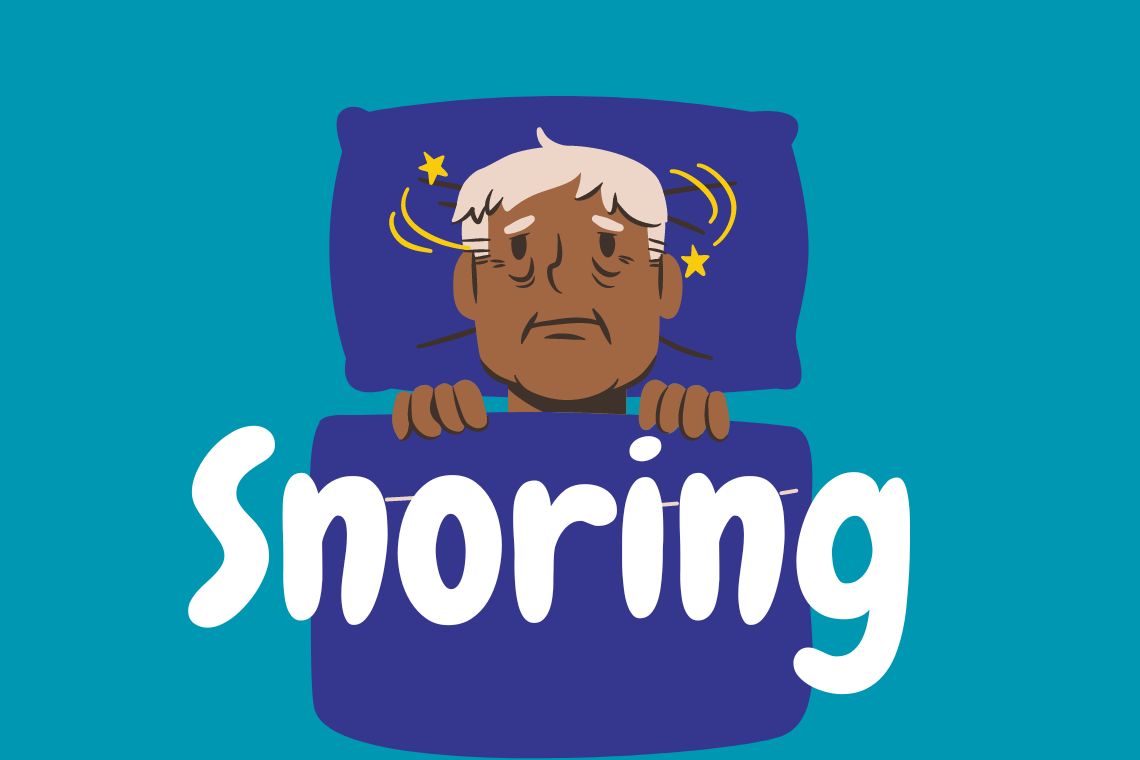
Snoring can be bothersome for both the snorer and their sleeping partner. However, there are various measures available to address this issue and improve sleep quality and overall health. Let’s take a closer look at snoring, its symptoms, factors that contribute to it, the connection to sleep apnea, and possible treatment options.
Table of Contents
Is Snoring Really That Bad Understanding snoring symptom and Treatment
Snoring occurs when the airway becomes partially blocked during sleep, leading to the vibration of soft tissues. It is an unconscious behavior and can be disruptive to those who hear it. Snoring happens when the airway muscles relax during sleep, causing the airway to narrow. As a result, the surrounding soft tissues vibrate when air tries to pass through the restricted pathway.
Symptoms
Symptoms of snoring include
- loud breathing during sleep
- excessive daytime tiredness
- morning headaches
- impaired concentration and memory
- frequent trips to the bathroom at night
- mood-related issues such as depression, irritability, and mood swings
- Many people may not be aware that they snore, as it happens involuntarily
Factors that affect
Several factors increase the likelihood of snoring. While both men and women snore, it is more common in men and tends to increase with age. Other contributing factors include being overweight, alcohol consumption, tobacco use, nasal issues like congestion or a deviated septum, and genetic predisposition to snoring. In some cases, the shape of the neck, airway, or head can also play a role.
Snoring is often associated with sleep apnea, a sleep disorder characterized by snoring as a major symptom. However, not everyone who snores has sleep apnea, and snoring alone is not a definitive indicator of the condition. Sleep apnea can manifest with additional symptoms such as breathing pauses, choking or snorting noises during sleep, dry mouth, morning headaches, excessive daytime sleepiness, irritability, and mood disturbances. Sleep apnea, if left untreated, can lead to serious health conditions like type 2 diabetes and cardiovascular disease.
Treatment
Fortunately, there are numerous treatment options for snoring
- Losing weight can help reduce excess tissues in the neck and open up the airway.
- Adjusting sleeping posture by avoiding sleeping on the back and using positional aids, like placing a tennis ball in the back of pajamas, can be helpful.
- Elevating the head during sleep, either by propping up the bed or using additional pillows, can aid in maintaining an open airway.
Nasal strips and dilators can improve nasal airflow
while addressing nasal congestion caused by a deviated septum is essential. Limiting alcohol, sedatives, and depressants before bedtime is recommended, as they relax the muscles and contribute to snoring. Maintaining a regular sleep schedule and ensuring adequate sleep duration are important for overall well-being.
Oral anti-snoring devices
such as mouthpieces, can be customized by a dentist to help keep the airway open.
Quitting smoking
is beneficial not only for general health but also for reducing snoring.
Continuous Positive Airway Pressure (CPAP) therapy
which involves wearing a mask connected to a pump that delivers compressed air to keep the airway clear during sleep, is an effective treatment option for severe cases of obstructive sleep apnea.
In some instances, surgical procedures can be considered to address anatomical issues and prevent the closure of the upper airway during sleep.
It is crucial not to ignore snoring, as it can significantly affect sleep quality and overall health. Seeking appropriate treatment and support can help alleviate snoring problems, leading to improved sleep and better long-term health outcomes.







Thank you for consistently providing content that sparks curiosity and learning.